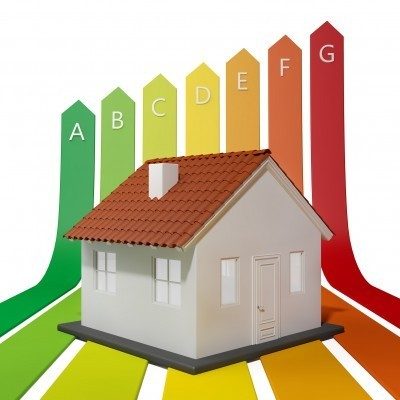
Buy-to-let-landlords face energy efficiency bills
Rented homes must adhere to new minimum energy standard
Buy-to-let-landlords may need to pay up to £3,500 to improve the energy efficiency of their rented homes, under regulations set to come into force next year.
Since April, properties in the private rented sector have needed to have a minimum Energy Performance Certificate (EPC) rating of E.
Buy-to-let-landlords are currently able to claim an exemption if they can’t secure government funding for energy improvements, but that’s set to change.
Here, we explain how the regulations will work, who will be affected, and how you can improve the energy efficiency of your home.
Energy efficiency rules for landlords
In April, the government brought in Minimum Energy Efficiency Standards (MEES), requiring rented homes to have a minimum Energy Performance Certificate (EPC) rating of E.
These changes initially only covered new tenancies and renewals, although existing tenancies will also be included from 2020.
The MEES mean that Buy-to-let-landlords can no longer rent out homes with an EPC rating of F or G, and those who continue to do so face fines up to a maximum of £5,000.
Currently, a ‘no cost to the landlord’ exemption is in place, meaning that if landlords can’t access funding to improve their energy efficiency (for example from the Green Deal or their local council), they won’t need to pay to make changes themselves.
That exemption will be removed, making landlords liable for efficiency improvements up to a cap of £3,500.
There will still be exemptions on offer for properties that would cost more than £3,500 to bring up to scratch, but landlords may still need to pay for changes that take them up to the cap.
Efficiency changes could cost £1,200
These proposals follow a consultation on energy standards earlier this year, and are expected to come into force in early 2019.
The government predicts that updating older properties to a minimum EPC grade of E will cost an average of £1,200, and says these changes will improve standards in the private rented sector.
Energy minister Claire Perry says: ‘While the vast majority of buy-to-let-landlords take great pride in the properties they own, a minority still rent out housing that is difficult to keep warm.
‘Upgrading these homes so they are more energy efficient is one of the most effective ways to tackle fuel poverty and help bring down bills for their tenants, saving them £180 a year.’
Industry reacts to energy rule changes
The estate agency Strutt and Parker has warned that rural landlords with older homes could be particularly vulnerable to extra costs, as upgrading their properties will be prohibitively expensive.
The Residential Landlords Association (RLA), meanwhile, has expressed disappointment that the government ignored its recommendations to make energy efficiency changes tax-deductible.
David Smith of the RLA says: ‘It is bizarre that, for example, replacing a broken boiler is classed as a tax-deductible repair, but this is not the case if a landlord wants to replace an old boiler with one that is more energy efficient’.
On the other side of the fence, fuel poverty campaigners say that the £3,500 cap should have been set much higher, with National Energy Action claiming landlords will still be able to let out homes that are ‘dangerously cold and damp’.
How energy performance certificates work
All properties listed for sale or rent in the UK must have a valid EPC, which provides a rating of how efficient the home is.
EPC ratings range from Grade A (best) to Grade G (worst), with a better rating theoretically meaning a warmer home with lower energy bills.
EPCs are granted by accredited energy assessors and last for 10 years.
You can find out if your property has a valid certificate on the government’s EPC retrieval website.
Improving your EPC rating
Although the government no longer finances Green Deal loans – which once offered funding for energy improvements – some funding is still available from approved providers, subject to a Green Deal assessment. You can find out more about how this works in our full guide to The Green Deal.
If you’re interested in getting to grips with the basics of improving the energy efficiency of a home you’re letting out, you can check out these Which? guides:
- 10 ways to save on energy bills – discover the simple ways you can improve your property’s efficiency.
- How to buy energy-saving products – learn about the running costs of different appliances.
- Home improvements – get the lowdown on the improvements that make the most financial sense, including loft insulation, cavity wall insulation and draught proofing.


If you have any comments, please email the author of this article and click on the link above